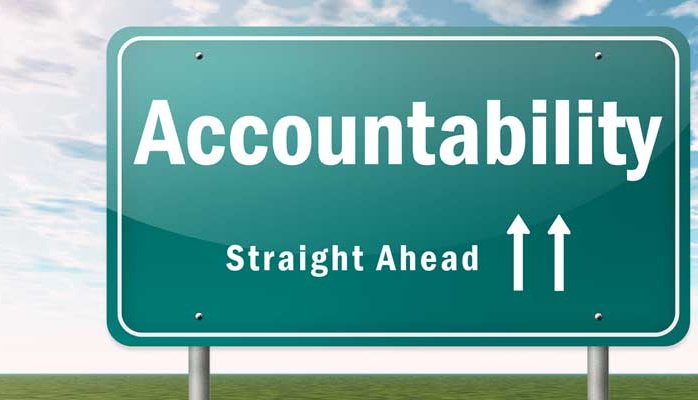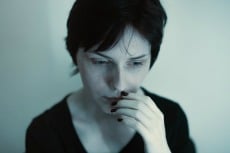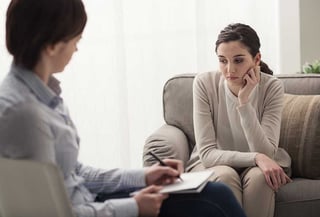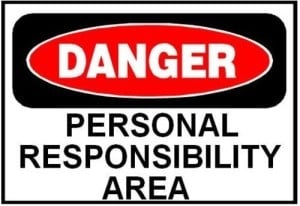
Do you need to hang your head in shame because of the choices you made in the past, when you were in mental and emotional pain and didn’t know any other way?
Does being completely responsible for your experiences mean that every bad thing that happened to you is your fault?
In a word, no!
“You are completely responsible for your experiences in Life.”
This powerful truth is one of the Principles of Spiritual Psychology, and it’s also an idea that causes a lot of confusion.
In this post, we'll discuss addiction and personal responsibility. We’ll clarify what it means to take full responsibility for recovery, and how doing so will help you to move on from addiction and go through life with your head held high.
What We Can and Cannot Control
In this life, there are many factors outside of your control: the family you were born into, the genes that you have, whether or not you were loved and safe as a child.
However, a great many more significant factors are within your control. For example, you get to choose what you think and believe, and therefore how you feel.
This saying - often attributed to Abraham Lincoln - sums it up:
“I have noticed that most people in this world are about as happy as they have made up their minds to be.”
 In short, you get to decide on your attitude and your perception of the world.
In short, you get to decide on your attitude and your perception of the world.
You may have experienced terrible traumas such as childhood abuse and neglect. The mental and emotional pain from these past events may be driving your present addiction.
Though those circumstances were not in your control in the past, you get to decide how to move forward now. You get to choose whether or not to address and heal the underlying core issues causing you to use.
The Power of Perception: A Thought Experiment
Imagine that you have two friends.
The first friend has had a hard life. Growing up, his parents emphasized harsh, rigid rules instead of emotional connection, and his siblings teased him mercilessly. In high school, he started doing drugs and decided to drop out before graduation. His health and happiness deteriorated, and now he’s struggling to stop using.
The second friend is incredibly gifted. He’s an amazing musician, always creating new melodies on his guitar. He has performed in several showcases and has had steady work teaching others to play. He feels things deeply, and when you talk to him, he really listens. He has issues with drug abuse, but he’s working hard to recover.
Here’s the thing: these two hypothetical friends are one and the same.
Does this guy have hope for recovery?
It depends on your perspective, on what story you choose to tell.
The Difficulty of Dual Diagnosis
 If you’re struggling with a dual diagnosis - a substance addiction combined with a mental health concern such as depression or anxiety - you may feel as though your life is out of control.
If you’re struggling with a dual diagnosis - a substance addiction combined with a mental health concern such as depression or anxiety - you may feel as though your life is out of control.
And we’ll be the first to affirm that your struggles are real.
It’s not easy to cope with a dual diagnosis. But the good news is, you’re the author of your story.
You can decide to despair, or you can believe that your unresolved issues are opportunities for spiritual growth. You can choose to abdicate personal responsibility, or you can step up to the plate.
Everyone has all of resources that they need to heal within themselves. This is good news, because it means that you don’t have to rely on anyone else to heal you.
Much as we work to create a wonderful addiction recovery program, we know that we can't heal anyone. Rather, we show people how they are capable of staying clean. We do this by providing a safe, loving, and supportive environment and empowering, practical teaching.
What Does It Mean to Take Accountability in Addiction Recovery?
First, here’s what taking accountability and personal responsibility does NOT mean.
It does not mean that you caused or “deserved” the hard things that happened in your life.
It also does not mean that you assume a heavy weight of guilt, blame, and shame, because you “should have known better.”
How can you blame yourself for something you did from a place of ignorance? In the wise words of Maya Angelou,
“I did then what I knew how to do. Now that I know better, I do better.”
Here’s what taking accountability and personal responsibility DOES mean …
- Deciding that you are going to lead your own life, determine your experience of the world, and create your own reality from here on out.
- Offering yourself forgiveness for the times when you didn’t take responsibility in the past.
- Releasing your judgments and limiting beliefs and utilizing the power of positive affirmations.
- Practicing self counseling and working with your unresolved issues and disowned inner aspects.
- Making the choice to heal every day.

How Taking Personal Responsibility in Addiction Recovery Empowers Us
No matter what happened before now, you get to choose what you do next.
Will you isolate yourself and continue the downward spiral?
Or, will you reach out, get help, and do the work you need to do in order to heal?
The answer you give makes all the difference.
Ready to take personal responsibility in your addiction recovery?
Call us at 424.275.8600 for a confidential conversation on your specific situation.
Download E-Book Healing Core Issues



